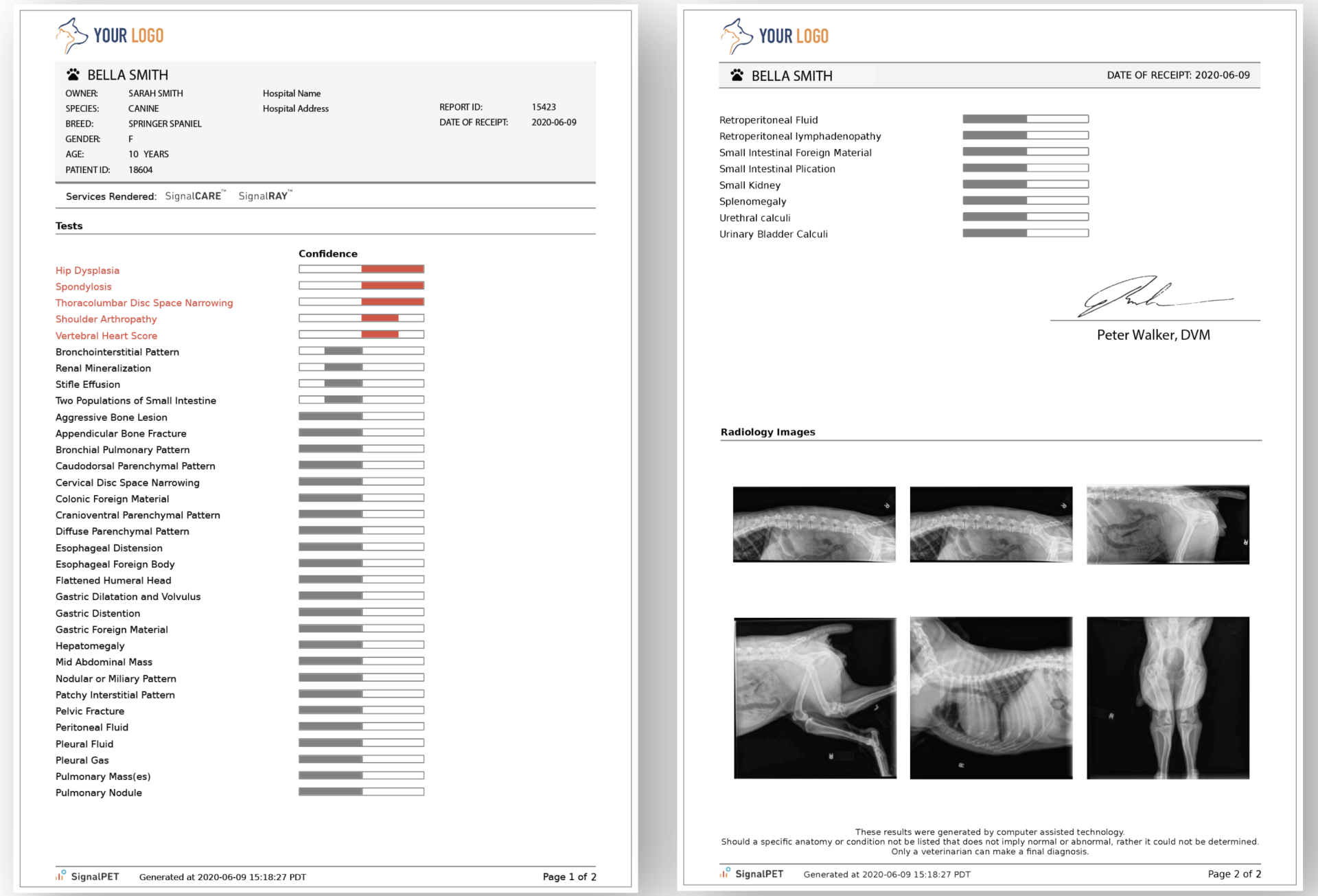Dog care services in Tonbridge
Artificial Intelligence in Veterinary Practice
At Little Hoppers Vets, we are keen to be at the forefront in healthcare advancements.
We have invested into diagnostic equipment with incorporated artificial intelligence to assist in diagnostic accuracy.
Artificial intelligence (AI) provides:
- Improved diagnostic accuracy with AI-assistance as bias and subjectivity are eliminated.
- AI systems analyse cases with 100% consistency.
- AI systems reduce diagnostic error and misdiagnosis, while improving treatment accuracy with more detailed results.
AI systems evolve as they gather more-and-more data and information, enabling a growing power in automated disease recognition.
The AI systems progressively learn more disease presentations as their use is incorporated in healthcare clinics over the world, thereby building an ever increasing library for disease-pattern recognition.
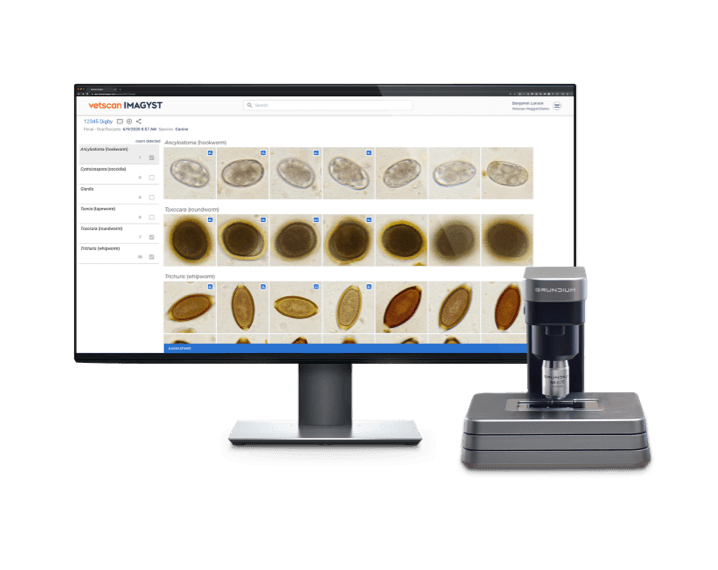
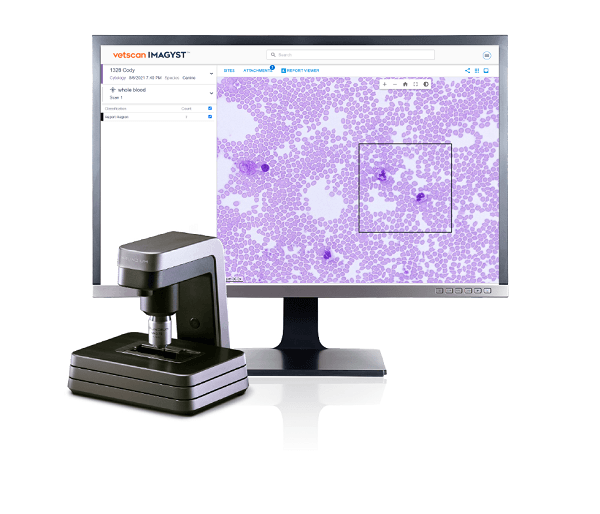
VetScan Imagyst
The VetScan Imagyst is a innovative technology revolutionising faecal flotation testing, tissue cytology and haematology within the practice.
Its automated parasite recognition system provides rapid identification of various faecal parasites (roundworm, hookworm, tapeworm, whipworm, coccidia and giardia) with high sensitivity and specificity to help veterinarians make an accurate and timely diagnosis for patients.
The high-resolution camera allows the upload of images from tissue samples onto a cloud database, with the ability to easily share with a network of remote expert clinical pathologists around the world.
The system delivers fast and accurate faecal and cytology results so we can make essential treatment decisions sooner.
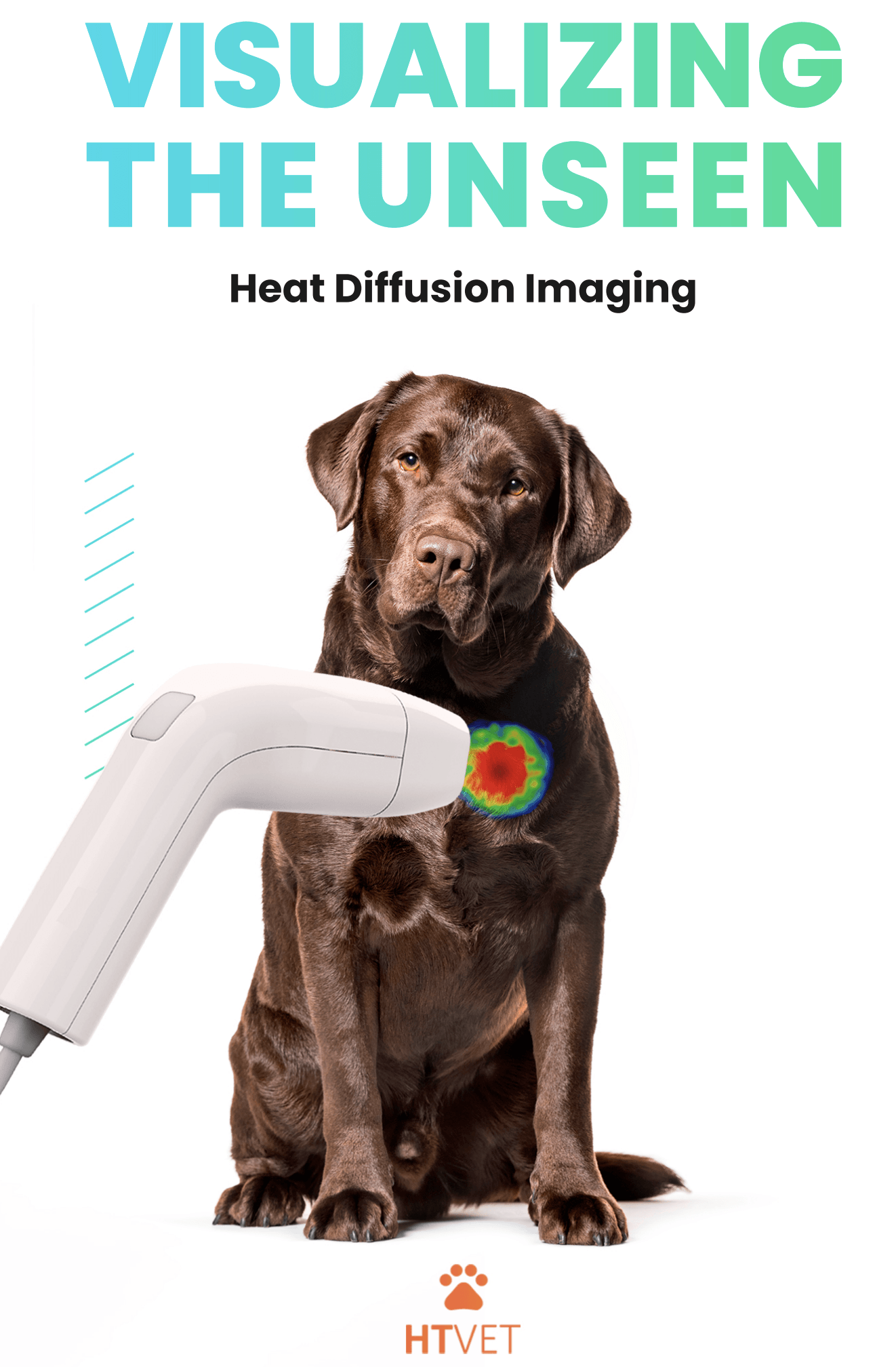
HTVet
HTVet is a medical device that allows veterinarians to rule out skin cancer of subcutaneous and dermal masses at the clinic in a fast, affordable and non-invasive way.
The device allows the veterinarian to differentiate between malignant and benign skin masses by scanning the area of interest with a specialised heat sensor.
The scanner sends out heat waves to the tissue. The built-in sensor measures the heat diffusion signal. This signal is analysed using computer vision and AI algorithms, comparing the results to a cloud database. Within minutes, the device informs the veterinarian whether the mass is likely to be benign or malignant in nature, allowing prompt intervention if needed.
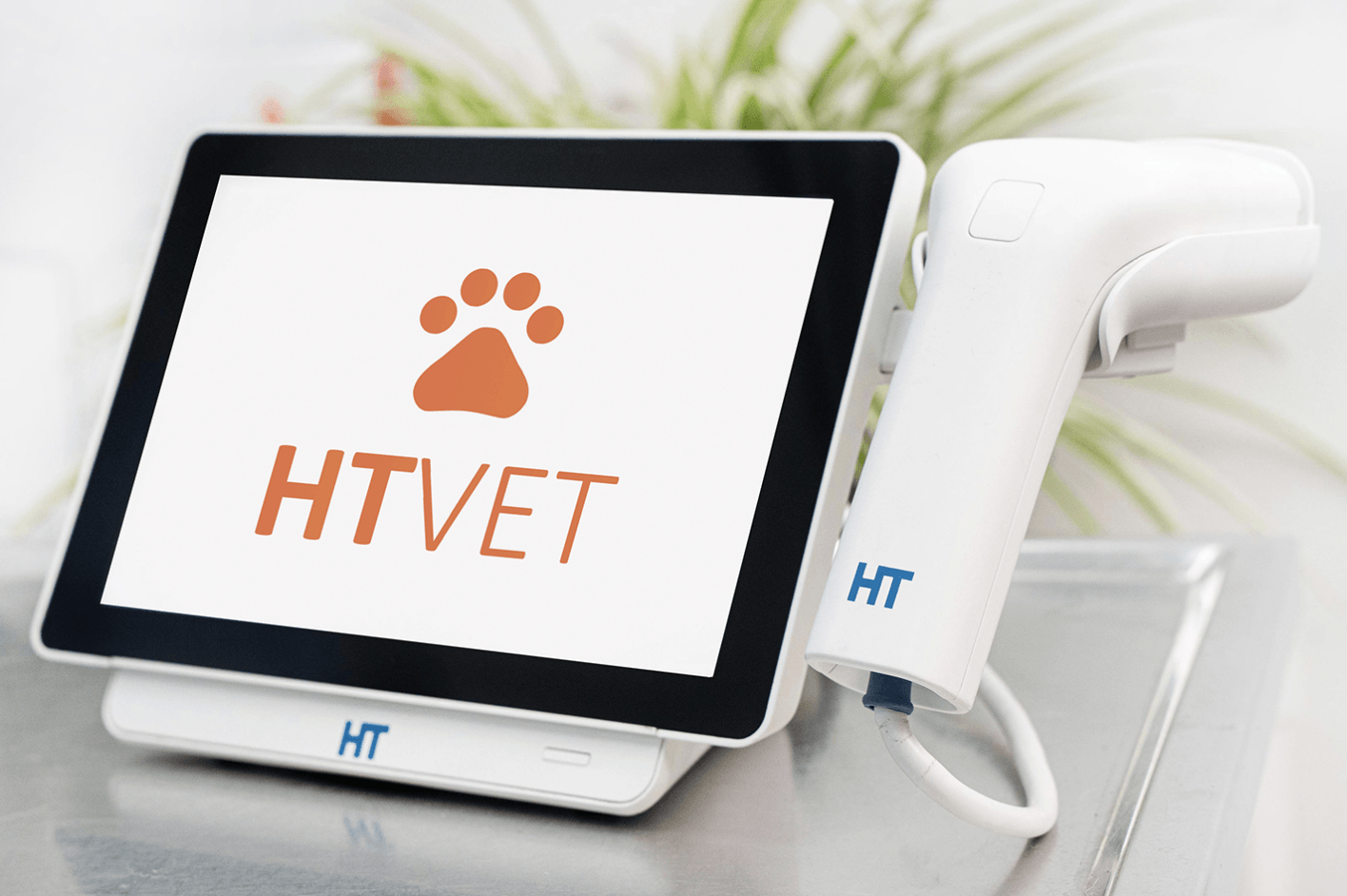
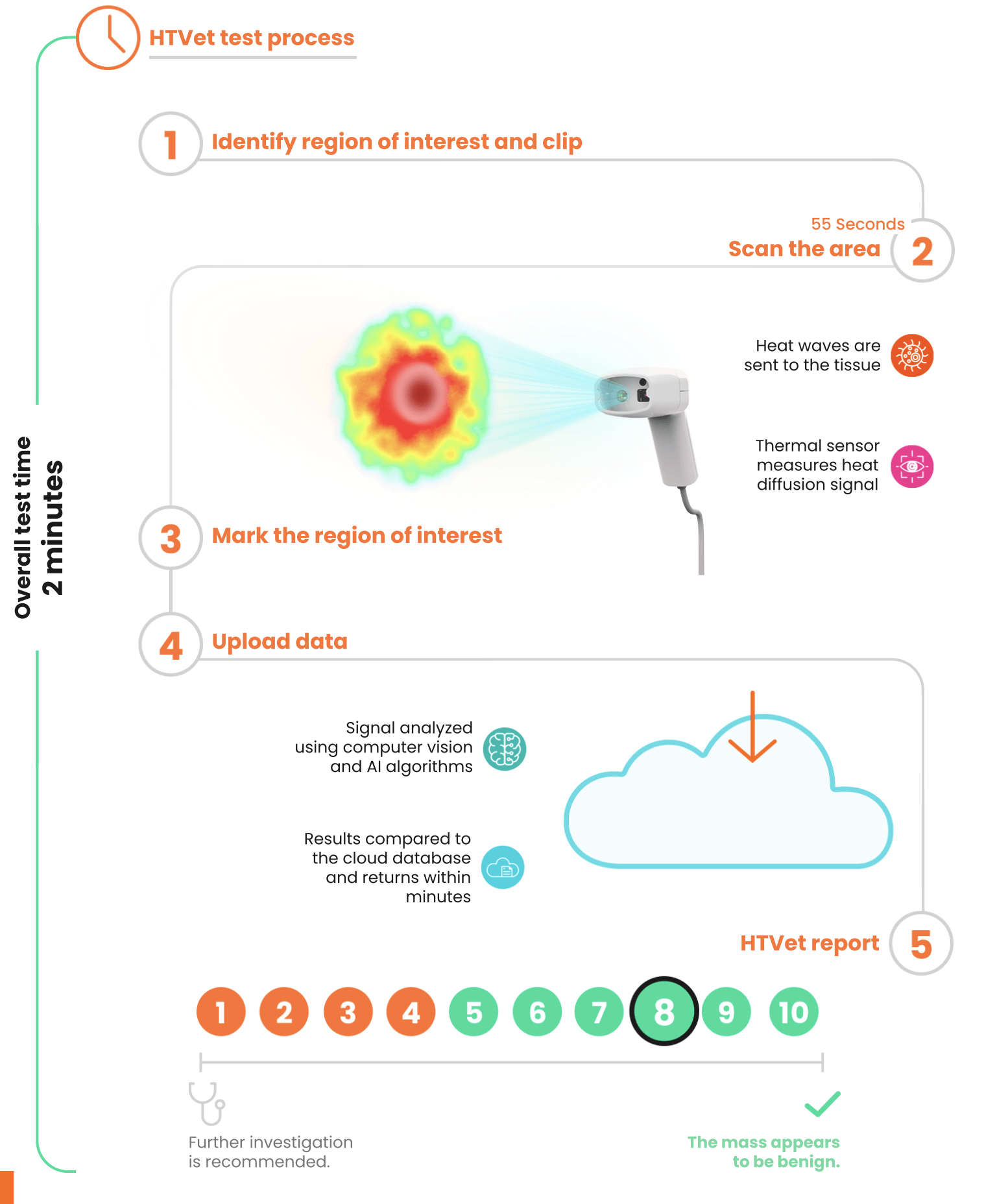
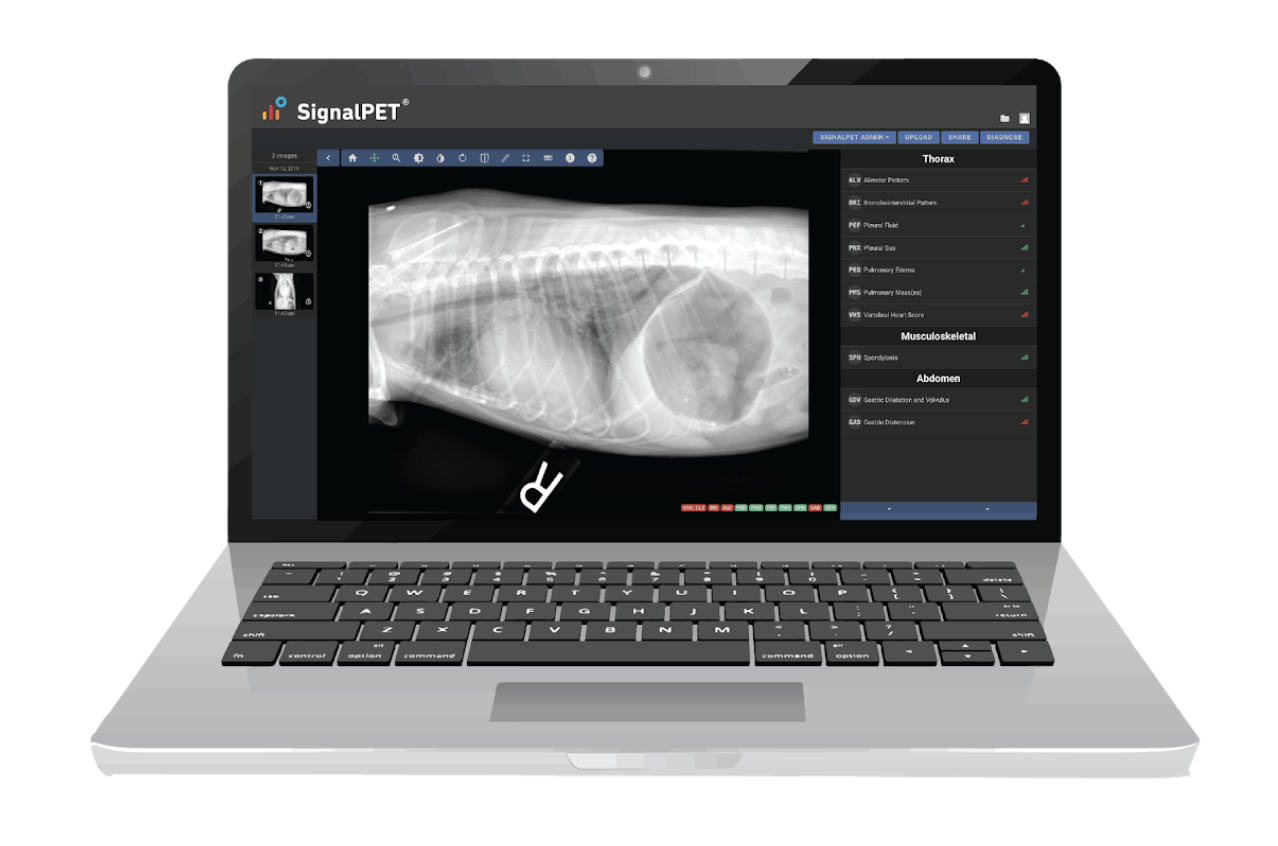
SignalPet
Whenever we perform a x-ray (radiographic) study, the images are automatically submitted to SignalPet's AI System.
The AI System
provides results with an analysis of SignalRAY's findings. It truly is a second set of eyes.
The software is able to provide automated recognition of 50+ disease presentations.
CARDIAC PANEL
Vertebral Heart Score
EXTRAPULMONARY PANEL
Oesophageal Distention
Oesophageal Foreign Body
Pleural Gas
Pleural Fluid
PULMONARY PANEL
Cranioventral Parenchymal Pattern
Caudodorsal Parenchymal Pattern
Diffuse Parenchymal Pattern
Bronchial Pattern
Thoracic Mass(es)
GASTROINTESTINAL PANEL
Gastric Distension
Gastric Material
Gastric Dilatation and Volvulus
Small Intestinal Foreign Material
Small Intestinal Plication
EXTRAGASTROINTESTINAL PANEL
Hepatomegaly
Mid Abdominal Mass
Splenomegaly
Peritoneal Fluid
UROGENITAL PANEL
Renal Mineralization
Renomegaly
Urinary Bladder Calculi
Uterine Distention
Urethral Calculi
Prostatic Mineralization
SPINE PANEL
Cervical Disc Space Narrowing
Spondylosis
Thoracolumbar Disc Space Narrowing
FORELIMB PANEL
Appendicular Fracture
Aggressive Bone Lesion
Shoulder Arthropathy
Elbow Periarticular Osteophytosis
PELVIS PANEL
Pelvic Fracture(s)
Hip Luxation
Hip Osteoarthritis
HINDLIMB PANEL
Appendicular Fracture
Aggressive Bone Lesion
Stifle Periarticular Osteophytosis
Stifle Effusion
